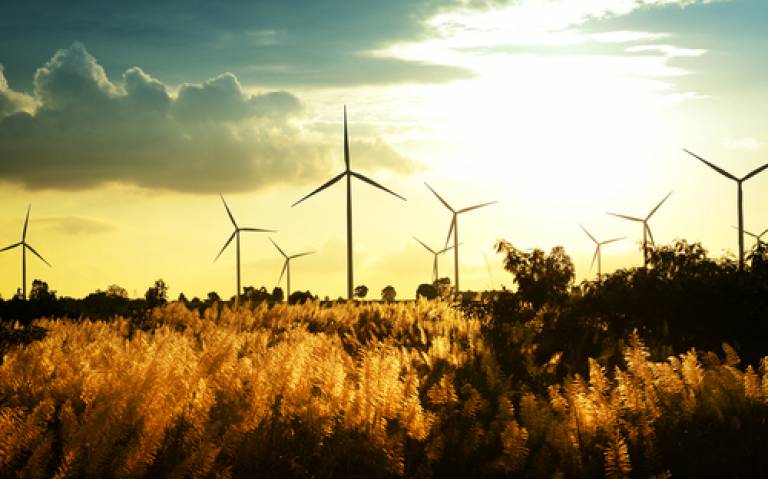Renewable power systems must overcome yearly weather changes - new UCL report
1 May 2018
Renewable energy-based power systems must include energy storage and flexible forms of supply to contend with weather conditions changing from year to year, new research from UCL suggests.

Renewable energy-based power systems must include energy storage and flexible forms of supply to contend with weather conditions changing from year to year, new research from UCL suggests.
Researchers from UCL’s Energy Institute analysed ten years of weather and assessed how to best configure a renewables-focused power system to meet domestic needs. Such systems must be designed to overcome situations of suboptimal weather conditions in order to meet demand, because relying on renewable sources like wind and solar depends on the weather.
The report, published in Nature Energy, found that unless systems are planned as to mitigate the variability of Great Britain’s weather over many years the system will fail to meet demand all of the time (meaning black outs) or will fail to meet carbon reduction targets (because they have to run fossil fuel plants to fill the gaps).
Such mitigation efforts could include utilising energy storage, interconnection to other countries, demand side management and, where necessary, flexible generation like natural gas.
For the first time, this research explores the effect of inter-annual weather variability on systems with high levels of renewable sources. Previous studies have used averages of multiple years or single weather years – but this research is the first to demonstrate the importance of factoring in the changes in weather between years when planning a power system.
James Price, Research Associate at the UCL Energy Institute, said:
“If power systems with high shares of renewable energy sources are to play a key role in climate change mitigation, then modellers and decision makers alike must account for their particular system’s sensitivity to inter-annual weather variability.”
Marianne Zeyringer, Senior Research Associate at the UCL Energy Institute, said:
“Previous research analysed the impact of weather by looking at single years or averaging many years together, thus neglecting inter-annual variability. Here, for the first time, we demonstrate the importance of inter-annual weather variability when designing future renewable focused energy systems.
If policy makers fail to incentivise the design of systems that that are flexible enough to handle how the weather changes from year to year, a renewables-based system could lead to blackouts or reverting back to fossil fuel sources.”
Notes to editors
- View ‘Designing low-carbon power systems for Great Britain in 2050 that are robust to the spatiotemporal and inter-annual variability of weather’, published in Nature Energy this week.
- For media enquiries, please contact 020 7679 9041.
 Close
Close

